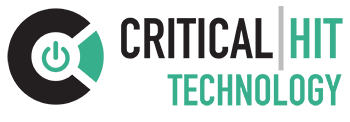The global pandemic led millions of people to work from home, a move many employers and employees would never have made on such a massive scale.
But the advantages of homeworking have not been lost on new job applicants, and now options for remote or hybrid working—a mixture of office-based work and some work from home (WFH)—are the new norm in job advertisements.
The advantages of remote working for job applicants are pretty obvious. There are considerable savings in terms of travel time and costs, plus a flexible working routine can better fit the demands of children and family life.
But beyond the benefits, what can employees and prospective job candidates expect in this new WFH job landscape? Consider these critical factors below.
Interviewing for a Remote Job Position
Not only has working life become remote, but interviews are also now commonly conducted online.
One of the significant challenges for the employer is verifying who they are talking to in terms of identity, so expect to have to produce legal documents to confirm who you are on your video call.
That said, applicants should be cautious about supplying their identification and other documents. If the entire exchange is happening through email, this should raise red flags. There are plenty of job scams around for the unwary. Research the company as much as they are sure to research you.
The requirement for employers to conduct ever more stringent checks has increased with the rise in remote workers. Most companies outsource this process, so you should expect background screening checks if an employer makes you an offer.
Ask your new employer what is a comprehensive background check for this role, says ScoutLogic.
Usually, background checks include verification of personal data and a review of any public records, but depending on the role, some companies dig a bit deeper. Time to review those photos on social media, says SmallBizTrends.
Monitoring Productivity
Keeping tabs on worker productivity at home depends upon many different elements, including the nature of the job, the type of deliverables, and the level of the staff members.
Some companies take a more relaxed approach to WFH than others. Often, these companies already had some elements of hybrid work in their culture pre-pandemic.
Others are using software programs to monitor productivity.
The advent of monitoring software has had a mixed response. Most people are still unaware of technologies like keystroke monitoring and camera tracking.
Surveys have revealed that many people are uncomfortable with this surveillance in their work-life, especially in their own homes (click here for details). There seems to be little formal regulation about what employers can do. It’s worth asking the prospective employer how they gauge productivity if this technology makes you uneasy.
Conclusion
Remote work is the new normal, and it has changed the rules of engagement between employers and employees forever.
Make sure you sound out at interview your remote work process and dig deep into the reality of what this will mean in your home.
Most people want to match up with an employer who is relaxed about monitoring staff, but this is more challenging with a new employer/employee relationship outside the traditional office setting. It’s your right to ask questions to make sure the job works for you as much as you do for the job.
Last Updated: June 3, 2022




















